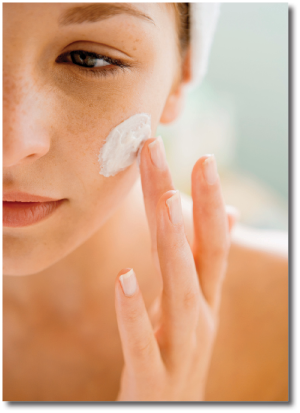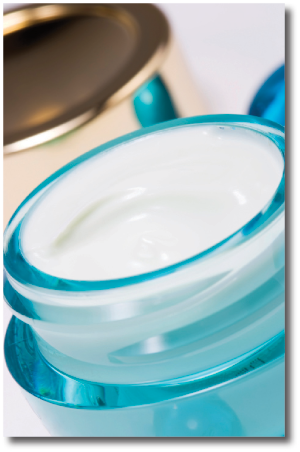Most of us know the advantages of selling retail products well, so for the sake of argument let us look at the dark side of not selling our clients their home care products. In other words, what are the consequences of our failure to play the role of expert in recommending products for the day-to-day maintenance of our clients skin?
First, clients will end up buying department store products, drugstore, or infomercial brands. Not only will these products typically under-perform, they will generally not be suited to our client’s skin type or needs, and thus, will fail to provide proper results. Our client will become frustrated.
 And since they are getting their products elsewhere, the client will not have any reason to visit our spa between their treatments. Remember, training a client to visit our spa is just like training a child, the more we can get them to repeat a behavior and be rewarded for it, the more they will want to do it again and again. Of course, the opposite is also true. If they visit us long enough without tangible, encouraging signs, or feedback for their skin, they will eventually stop coming.
And since they are getting their products elsewhere, the client will not have any reason to visit our spa between their treatments. Remember, training a client to visit our spa is just like training a child, the more we can get them to repeat a behavior and be rewarded for it, the more they will want to do it again and again. Of course, the opposite is also true. If they visit us long enough without tangible, encouraging signs, or feedback for their skin, they will eventually stop coming.
If clients feel they have to or can make all of their product decisions alone, they will have no real reason to ever return. Therefore, lack of proper retail product recommendation is a costly way to lose a client. If clients do not see results in their skin care they may become disillusioned with the skin care industry as a whole.
OK, we just described the worst possible scenario, and hopefully you are not totally dropping the ball on home retail sales as described above. But, what about those of us who perpetually under-recommend products, having already decided from our own limited financial abundance mentality (scarcity mindset) what our client can or can not afford.
I can promise you that each of you reading this have at one point or another unconsciously decided what is in your client’s pocketbook, and because of this, you have literally cheated that client out of a possible result from the product you did not recommend because of the higher investment range. I know I have in the past, but frankly put that limited mindset aside for good when I finally realized I was actually doing a disservice to the very client I was supposed to be serving!
I now recommend with positive abandon based on what I know will be in the clients highest and best interest, and let them use their free will to decide how and when to proceed. When in doubt, or if you can not quite get to the place of recommending the highest and best need-based products for your client, at least give them your top choice and then a lower-end, fallback product. Even your second fallback product will be better for them than going elsewhere, and eventually you can gently move them up to the best choice, giving more education on the benefits as you gain their trust.
Here are some things I have learned to say and do over my 10 plus years in the aesthetics field that have helped me sell more effectively.
1. Keep it simple – if you are explaining the key benefits, tie them in with specifically how the product will help your client’s areas of need, and how it relates to their overall lan, both at home and in the spa.
Example: “The retinol product I am recommending will keep your outer cells turning over faster for a more radiant look and to fight superficial lines, as well as stimulating ollagen deeper in your skin for a more solid, firmer base. When we combine this with your microdermabrasion treatments in spa, adding the collagen mask into the mix, we have a proven system that works together synergistically to keep your skin looking younger, firmer, and healthier – sound good?”
2. When justifying a possible better product that will require the client to perhaps stretch out of their cost comfort zone, I simply float the following discourse out there during the facial treatment as a set up to prime the pump: “If I might, let me use the analogy that our body is kind of like a factory, in that as we get older it just does not function with the same efficiency. Therefore, to keep it operating close to optimum, one of our options is to provide for our body better ‘raw materials’ – this includes organic foods, more fruits and vegetables, natural, high quality vitamins, and of course our higher end, more result producing skin care products. This is inevitable if we are to age gracefully.”
3. Sometimes I act like the dictator/expert, telling my client that I absolutely know what they need to do to take care of their skin dilemma (if in fact I do), but in reality I cannot make them do anything. I might say something like, “So what I am going to do is present my home care recommendation plan to you, and you may do with it what you please. It is your skin and I will respect your decision either way.”
4. Speak to clients in basic, benefit related terms. We are not rocket scientists or product formulators, nor should we speak like we are. If you feel the need to know every active ingredient in every product you carry, so be it, just do not lay that whole burden on your client. Pick one or two actives per product and relate how they will benefit the client’s specific needs directly.
Example: “Our triple action exfoliation product can be used just once a week with little time or effort because of the effectiveness of its multiple actions incorporating crushed linseeds for texture and citric and lactic acid to loosen up dead cells. This organic product will brighten your skin, add surface hydration, clear the way for better product penetration, and cut down on your skins clogging, and will last at least six months.”
Products and services are equally important to the overall skin care plan of a client. But when you do the simple math, the home care regimen takes precedence on pure numbers. Clients have 365 days a year to take care of themselves at home, and even if they come in monthly, you only see them 12 times per year. Coordinating home and spa care in a comprehensive plan gives the best chance at success.
If you can compose a powerful home care system for them, your chance of keeping them as repeat clients multiplies immensely. And conversely, creating home care success stories will help you rock the retail sales!
Ameann DeJohn is a versatile industry professional with vast, real life business experience and a keen understanding of skin care. She is currently an active consultant, author, and speaker, advising contract manufacturers, and beauty businesses ranging from small start-ups to prominent corporations. Her hands on approach and seasoned expertise in multiple arenas of commerce have made her a top pick in the personal care industry. dejohn@ameann.com
Jamie Scalise is a full-time aesthetician for the Spa at DelMonte, an upscale Renaissance property in Rochester, NY. There he shares his 10 plus years of experience with clients combining anti-aging knowledge with a healing touch. In addition to his current book, “The Power of Three Method.”

